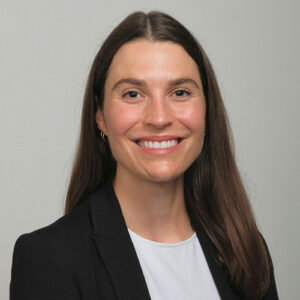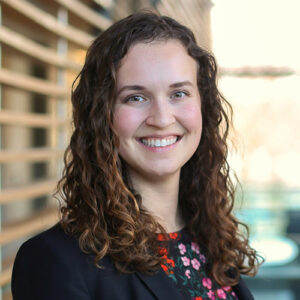About the award
The Dr. W. Dale Dauphinee Award for Excellence in Medical Education was named in recognition of Dr. Dauphinee’s many years of service as the executive director and registrar.
It is awarded annually to one medical student and one resident who have demonstrated excellence in medical education within the schools of medicine in Canada. Each recipient will be awarded $5,000 to be used for studies, books, or e-learning tools, and/or conference attendance.
Definition of excellence in medical education
Dr. Dauphinee was amongst the innovators and leaders at the Medical Council of Canada (MCC) from 1971 to 2006. As an agent of change in both educational practices and performance assessment, he promoted and guided the modernization of national assessment practices. An innovator in academia and in regulation, he led the introduction of new technologies and assessment strategies and worked across borders and disciplines to build new alliances and venues in regulation and the evaluation of physician performance. To honour his example, this award should confer recognition on individuals whose actions and accomplishments reflect the attitudes and values that have kept the MCC at the front of incremental change and quality improvement and to remain relevant to its public mandate.
Within this overall context, to qualify for the Dr. W. Dale Dauphinee Award for Excellence in Medical Education, a nominee should have made significant contributions to the betterment and accessibility of medical education and/or assessment practices through innovation within their faculty or between faculties within the health disciplines. Areas of interest could include:
- Developing innovative educational or assessment tools at undergraduate or postgraduate levels
- Improving accessibility of assessment tools through the use of technology in changing times
- Assessing the validity of artificial intelligence tools in learning or quality of care
- Initiating innovative qualitative and quantitative measures of performance
- Initiating an innovative process for virtual and/or continuing learning in practice
- Piloting and demonstrating clinical effect for new technologies
- Demonstrating peer feedback for improving clinical performance and/or for learning
- Creating collaborative alliances to improve assessment
- Improving assessment of inter-professional and/or team performance
Nomination process
Each school of medicine is asked to submit formal letters of nomination outlining how a trainee has demonstrated excellence in medical education during their training and why they should be considered.
Each school can only nominate one medical student and one resident for this award, for a total of two nominations. As such, we encourage each school to discuss the nominations internally.
The letter of nomination can come from the dean, associate/vice-deans of undergraduate or postgraduate Medical Education, program director and/or faculty member. The nominee’s curriculum vitae is also required and must be formatted in 11-point font or larger and should not exceed three pages in length.
Deadline: The letters of nomination must be submitted electronically to [email protected] no later than April 30 of the current year.
2025 recipients

Constance Bouthillier
Constance Bouthillier is a third-year medical student at the Université de Montréal. Before starting medical school, she worked as a lawyer specializing in commercial and medical litigation at a national firm. She holds a Bachelor of Laws and a Juris Doctor from the Université de Montréal.
Her experience in medical liability sparked her interest in integrating law and medicine, especially to better prepare future physicians for the legal and ethical challenges of clinical practice. In collaboration with the Fédération médicale étudiante du Québec and the law firm McCarthy Tétrault, she organized two conferences on preventing medical errors that attracted up to 370 participants. With the Comité en droit de la santé at the Université du Québec à Montréal, she helped organize an interdisciplinary symposium on complex topics such as artificial intelligence in medicine and organ donation.
Ms. Bouthillier is active in medical education research. She is involved in a project studying the impact of casting and splinting workshops for preclinical students, and she presented preliminary results at the C-CASE 2024 conference in Toronto. She is also collaborating on a qualitative study about psychological safety among medical clerks at CHU Sainte-Justine.
Additionally, Ms. Bouthillier is president of the Université de Montréal chapter of the Association of Women Surgeons, overseeing monthly journal clubs, an annual student research conference, and a surgical simulation day.
Through these roles, Ms. Bouthillier aims to contribute to innovative, interdisciplinary, and community-focused medical education.

Heather Nichol
Dr. Heather Nichol recently completed her residency in physical medicine and rehabilitation at Queen’s University. She previously earned a bachelor of science in life sciences from Queen’s University, a master of science in neuroscience from McGill University, and a doctor of medicine degree (MD) from Queen’s University.
Dr. Nichol’s passion for education has been a defining feature of her academic journey. As an undergraduate and graduate student, she designed and delivered academic success workshops, developed educator training programs, and educated youth on brain safety through community outreach. During medical school, she led anatomy tutorials, facilitated mentorship and personal development sessions, and contributed to the MD program’s wellness curriculum.
In residency, Dr. Nichol continued to advance her educational leadership. She supported medical students as a clinical skills instructor and developed a toolkit to promote psychological safety in small group learning. She represented residents on the Queen’s Resident Medical Education Committee and the Queen’s Resident Advisory Committee. Nationally, she contributed to the development of coaching modules through the Royal College of Physicians and Surgeons of Canada’s Coaching over Time initiative.
Dr. Nichol’s scholarly interests lie in understanding how the educational environment and relationships between clinical teachers and learners influence the educational experience. Her qualitative research study exploring resident experiences of vulnerability in postgraduate medical education was published in Medical Education.
As Dr. Nichol transitions to independent practice at the Stan Cassidy Centre for Rehabilitation in Fredericton, New Brunswick, she looks forward to working with medical learners from Dalhousie University, participating in the development of the MD program curriculum, and expanding her exploration of vulnerability and psychological safety in medical education.